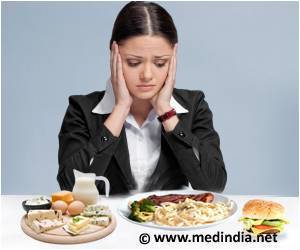Do you get the urge to fib about your eating style or your diet behavior even if it happens to be on the survey form? If yes, then you are not alone.
Assessments of diet in researches are usually based on self-report methods but the validity of these methods is dependent on the accuracy with which participants record their dietary intake. Under-reporting in self-reported dietary methods is a well-documented phenomenon among adults.But why don’t we tell the truth in surveys? Is it because we want to present a positive image of ourselves to friends, family and colleagues? It is a bias and it has a term – Social desirability bias.
The existence of systematic bias in dietary self-reports has been confirmed by many studies and research is on regarding methods of correcting for measurement error.
In an NIH funded Women’s Health Initiative-Nutrition & Physical Activity Assessment Study (WHI-NPAAS), Yasmin Mossavar-Rahmani, associate professor of clinical epidemiology and population health at the Albert Einstein College of Medicine of Yeshiva University, New York, and her colleagues examined the extent to which psychosocial and diet behavior factors can affect self-report and how they can improve the assessment methodologies, viz. food frequency questionnaire (FFQ), four day food record (4DFR) and 24 hour dietary recall (24HR).
The researchers used doubly labeled water and urinary nitrogen as biomarkers of objective measures of total energy expenditure and protein, respectively, in 450 post-menopausal women.
The psychosocial and diet behavior factors were body image perception, rating on the Social Desirability Scale, cognitive restraint for eating, uncontrolled eating, and emotional eating, and number of meals eaten at home.
• Participants with high social desirability scores were more likely to under-report on the FFQ for energy and protein intake compared to those with low social desirability scores.
• In the assessments combining FFQ, 4DFR, 24HR with age, BMI, race, and the psychosocial and diet behavior variables, the six psychosocial and diet variables explained 1.98%, 2.24%, and 2.15% of biomarker variation for energy, protein, and protein density respectively.
The researchers thus concluded that adding psychosocial and diet behavior factors to the assessment methods can strengthen the precision of the assessments by correcting self-report for measurement error.
The study has been published in the Nutrition Journal.
Source-Medindia









